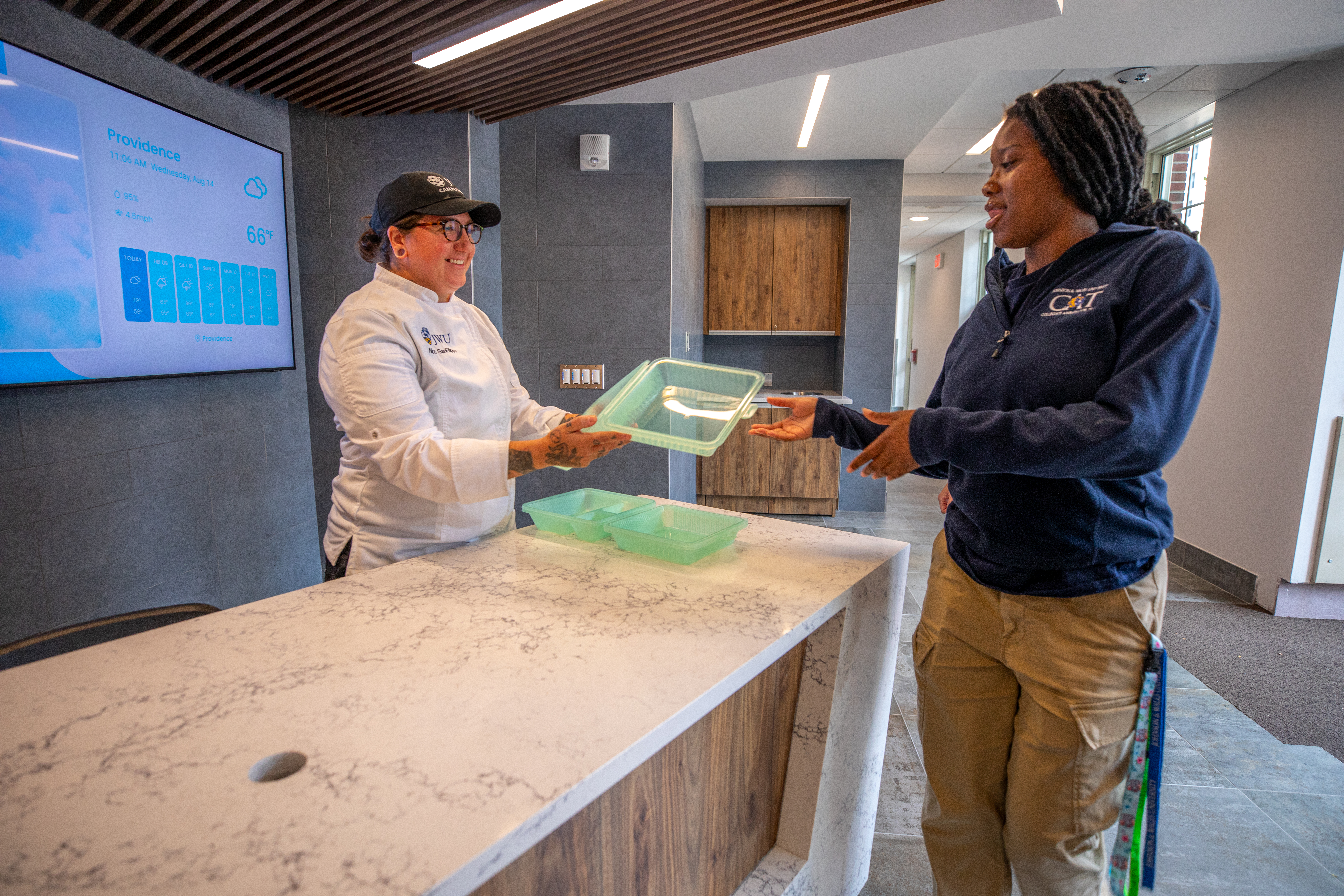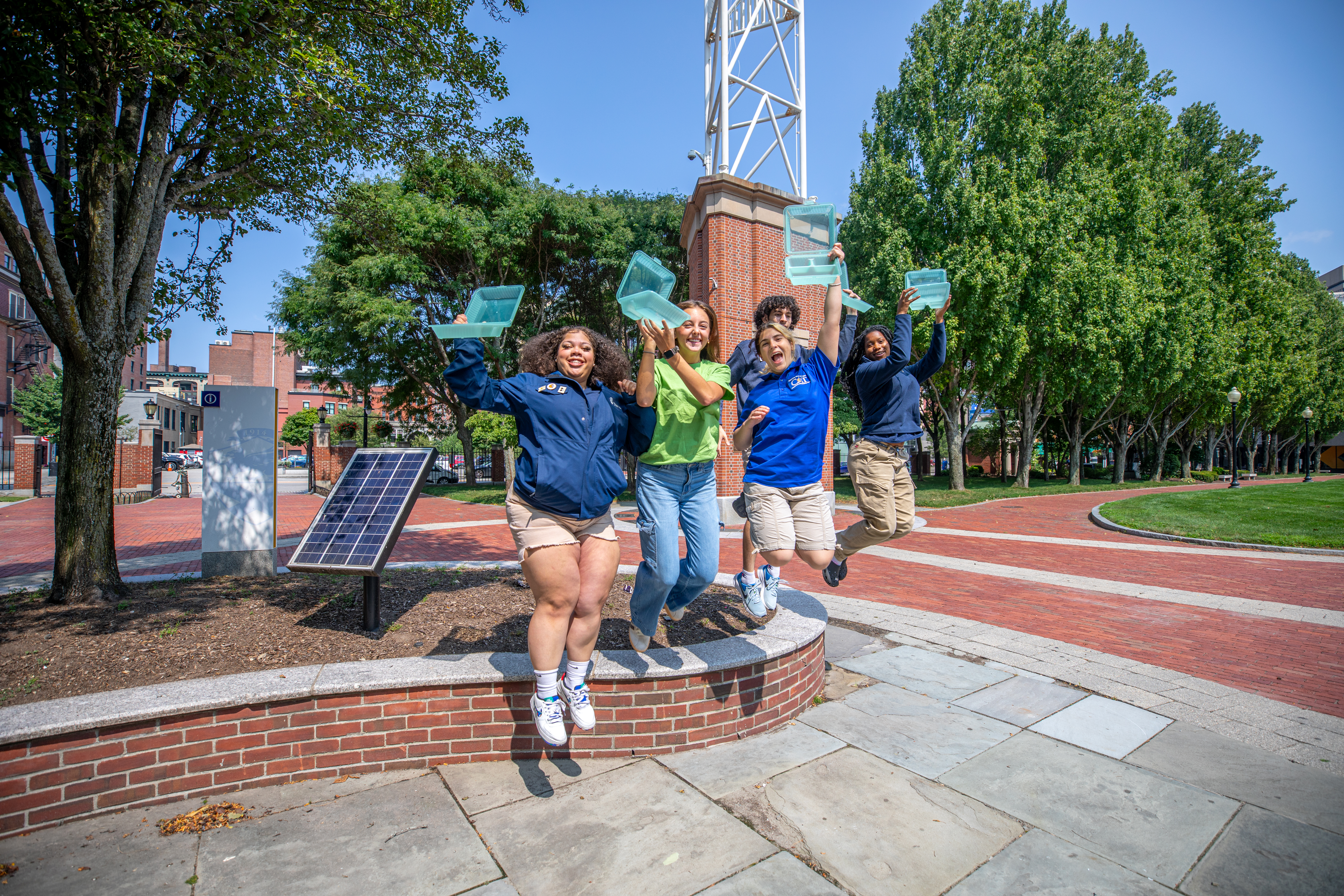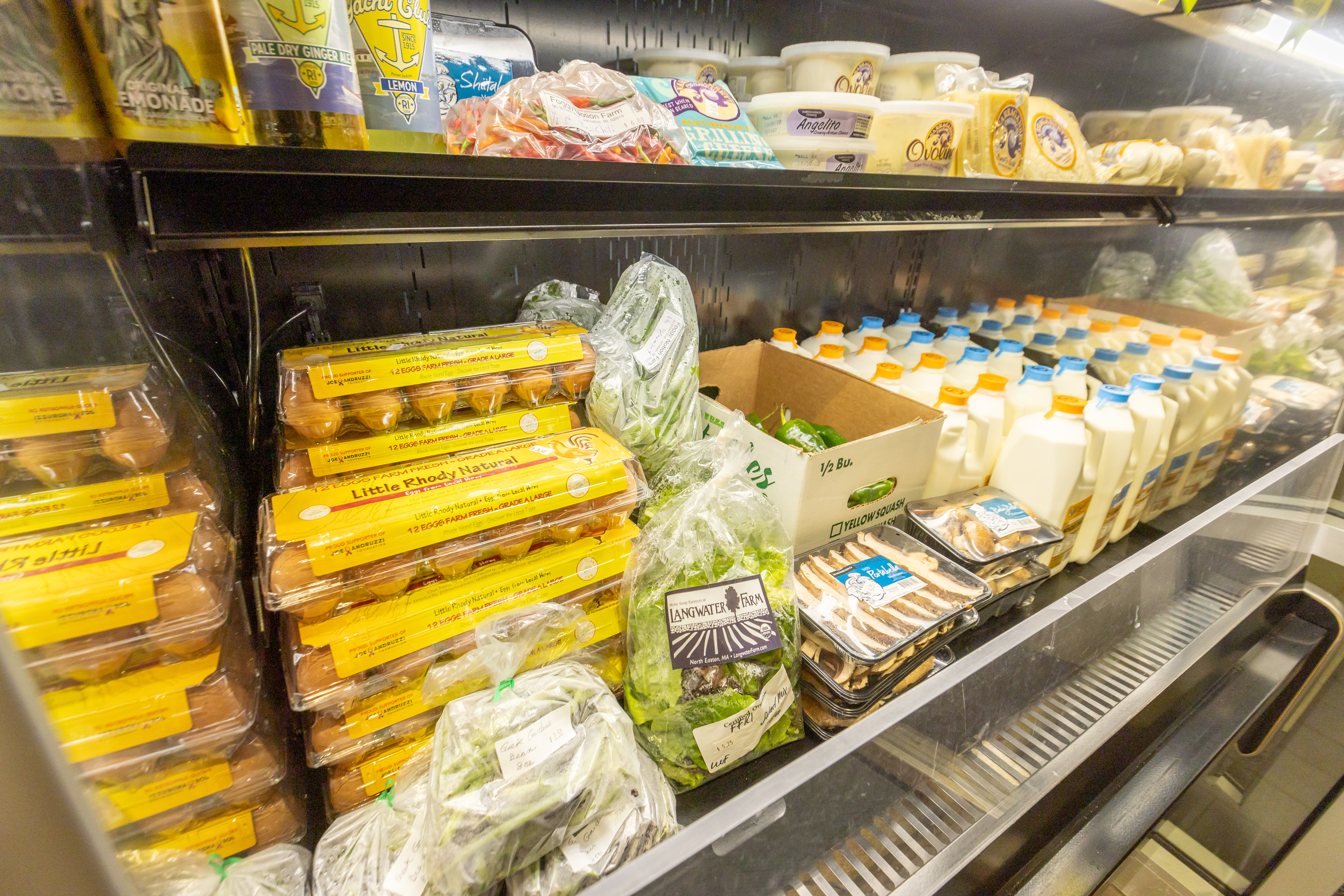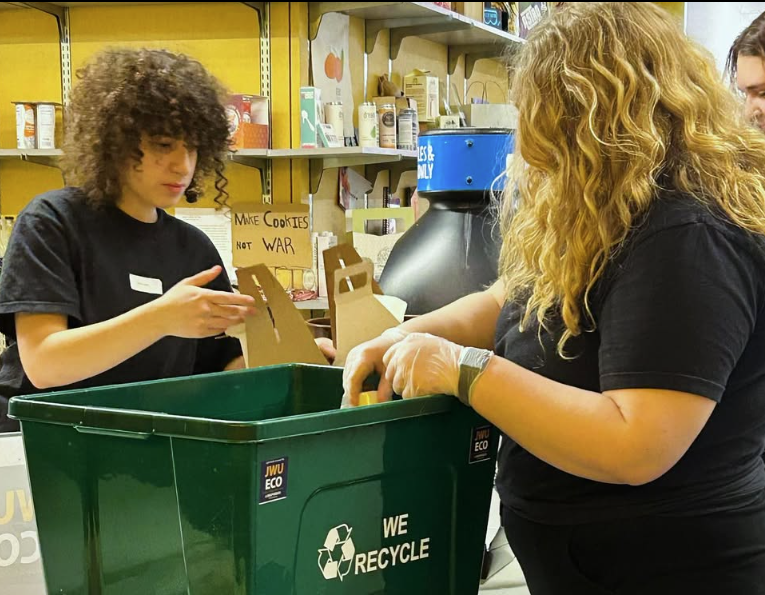At Johnson & Wales University we are committed to integrating sustainability into every aspect of our Campus Dining services. Our initiatives are designed to promote environmental stewardship, social responsibility, and community engagement, aligning with the highest industry standards.
Sustainable Procurement
We prioritize sourcing food from local and sustainable producers to support regional agriculture and reduce our carbon footprint. Our partnership with Farm Fresh RI and local vendors ensures that a significant portion of our ingredients are sourced within 250 miles of our campuses, prioritizing Rhode Island vendors. This approach not only guarantees fresh and seasonal produce but also strengthens the local economy.
Additionally, we seek out third-party certified sustainable offerings, such as Red's Best, to promote ethical and environmentally responsible practices throughout our supply chain. JWU Local highlights a variety of locally made products, including a partnership with New Harvest Coffee Roasters, which participates in the Source Direct program. This initiative purchases coffee directly from farmers and local cooperatives, paying at least 20% above the Fair Trade minimum to ensure fair wages and sustainable farming practices.
Waste Reduction & Diversion
To reduce waste, JWU has partnered with Bootstrap Compost and a local pig farm to establish a comprehensive composting program, repurposing food waste into nutrient-rich compost and a sustainable food source for animals, instead of sending it to landfills. Several times each semester, JWU ECO conducts food waste audits to track and reduce post-consumer waste, helping to educate students while also identifying adjustments needed to menus, recipes, and portion sizes.
Our reusable container program encourages students to choose sustainable options over disposables, significantly reducing single-use plastics. For items such as soup containers, we use World Centric compostables, ensuring that even necessary disposables are environmentally responsible. Both All-You-Care-to-Eat locations feature bean-to-cup coffee programs, eliminating the need for single-use Keurig cups. Additionally, we closely monitor pre-consumer waste by weighing and logging all discarded items, and repurposing ingredients whenever possible into stocks and soups made on-site.
Campus Dining also plays a vital role in supporting the Wildcat Food Rescue, donating surplus food to help combat food insecurity on campus.

Education & Outreach
We believe that fostering a culture of sustainability extends beyond our operations. JWU Campus Dining works closely with the Sustainability Department and regularly engages with the campus community through informational sessions with SGA, sustainable food samplings at Radius, and events such as our Sustainability Fair. These initiatives aim to educate students, faculty, and staff about sustainable practices and encourage active participation in our programs.
At Snowden Dining Hall, we feature a Fork Farm, an indoor hydroponic growing system that provides hands-on education about sustainable agriculture. This initiative not only teaches students about innovative and eco-friendly growing methods bu also produces fresh, fun ingredients used in Radius, further connecting our dining experience with sustainability efforts.
Get Involved
We encourage the JWU community to participate in our sustainability efforts. Students can join sustainability-focused student organizations on campus, volunteer at our events, or provide feedback on our programs. Together, we can make a positive impact on our environment and community.
At JWU, sustainability is more than a practice; it's a commitment to our planet, our community, and future generations.



